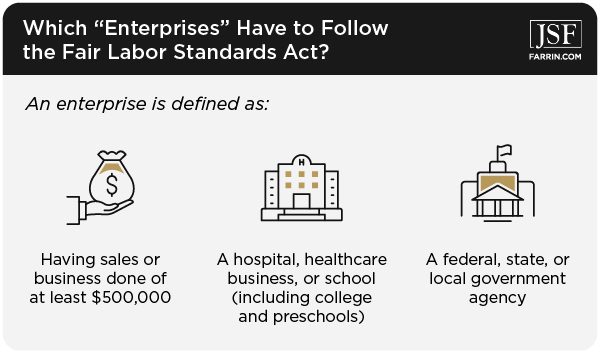You Work for a Living. But What If You Aren’t Getting Paid Fairly for Your Time?
There are firm North Carolina wage and hour laws, so if you believe your employer is shorting you, it’s time to act.
Fight for What’s Yours With a North Carolina Wage and Hour Lawyer
Are you a “salaried” manager or supervisor without any actual management responsibilities? Are you doing the work of an hourly employee?
Has your employer required you to perform job responsibilities before you clock in or after you clock out?
Are you expected to take work-related calls or attend meetings during lunch breaks or before or after work – without pay?
You’re not alone. Unfortunately, some employers have been known to purposely misclassify certain non-exempt employees (hourly) as exempt (salaried) so they won’t have to pay them overtime. Sound familiar?
Won’t a Wage Theft Lawyer Cost More Than I’ll Get for My Claim?
If you had to pay an hourly rate for an unpaid wages lawyer, it probably wouldn’t be worth it. But thanks to our contingency fee arrangement, you pay a percentage of anything you get back.2 If you get nothing back, you don’t owe any wage and hour attorney’s fee. If your claim is successful, you may also be eligible to have your attorney’s fee and legal costs paid by the defendant.
If you have been denied the appropriate compensation for your work, you may have a North Carolina wage and hour laws claim. Contact an experienced wage theft attorney by calling 1-866-900-7078 for a free case evaluation.
How Much Can I Get for Wage and Hour Theft?
If you are an employee with a proven minimum wage or overtime claim in North Carolina, you may be eligible for all of your unpaid wages. You may also qualify for additional compensation known as “liquidated damages,” which can amount to thousands of dollars.
What Is Double Back Pay?
When you qualify for liquidated damages, you are allowed to collect double your back pay in minimum wage and overtime because of payment delays.
What Are the North Carolina Wage and Hour Laws?
Under the North Carolina Wage and Hour Act (NCWHA), employers must pay hourly employees the wages they agreed to (which can be no less than the state minimum wage), plus time and a half for any hours worked over 40 for the week. An employer can reduce rates, but the reduction must be in writing and cannot be retroactive.
North Carolina Law on Lunch Breaks
The NCWHA doesn’t require employers to give employees meal or rest breaks throughout the day (unless the employee is under 16). If the employer does provide a lunch or rest break, the time can only be deducted from the employee’s wages if the break lasts at least half an hour.
Employers don’t have to provide a break room or even let employees leave the premises during a break. So long as the employee is not required to be doing any work for at least half an hour, the time generally qualifies as a break under the NCWHA.
What Is the Fair Labor Standards Act?
Your right to fair labor and wages is also protected by federal wage and hour laws, particularly the Fair Labor Standards Act (FLSA). The FLSA establishes standards for minimum wage, overtime pay, hours worked, recordkeeping, youth employment, child labor, and more. The FLSA covers all employees of an “enterprise.”
Even if a company or organization doesn’t meet these definitions, employees may still be covered by the FLSA if their duties meet certain requirements, like if their work involves interstate commerce or if they’re domestic service workers.
Is Your Company Stealing Your Wages?
You may be a victim of wage theft without realizing it. The Economic Policy Institute (EPI) defines wage theft as “the failure to pay workers the full wages to which they are legally entitled.”
According to an EPI study, wage theft robs millions of U.S. workers (especially the lowest-paid workers) of billions of dollars each year – $316 million in North Carolina, alone. The EPI found that low-wage workers in North Carolina who are not receiving minimum wage are losing almost one-third of the wages they are due. This is the third highest average loss among the top 10 states studied.
How Might Businesses Steal Your Wages?
Wage theft can take many forms. And employers have been known to get creative, so this list of examples is not exhaustive.
Not Following North Carolina Overtime Laws
Overtime hours can include:
- Time that is not specifically requested by your employer — but still permitted — in order to perform a task.
- Waiting time that is controlled by an employer, like an employee waiting for equipment to be repaired before they can get back to work.
- On-call time, where the employee is waiting to be engaged in their job function (like a nurse at a hospital).
- Meeting and training time required by work.
- Travel time, including time spent traveling between job sites or traveling for your job.
If you are not being paid overtime when you work over 40 hours in a week, then your employer could be in violation of the FLSA and you may have a wage and hour claim.
Off-The-Clock Violations
Many workers claim this is the most common type of theft. This violation occurs when an employer asks you to work off-the-clock before or after your shift, such as travel and training time. If employers allow you to work off-the-clock and anticipate benefiting from your labor, these hours must be counted as time worked.
Examples may include putting on required clothing, moving equipment, cleaning up, delivering documents, completing training, or revising paperwork outside of work hours at the request of your employer.
Illegal Pay Deductions
An employer can only withhold or divert a portion of an employee’s wages when the employer is required to do so by law or if the proposed deduction is 1) known, 2) agreed upon in advance, and 3) authorized in writing.
As clear as these laws are, not all employers follow them, as these two examples illustrate:
- Tipped Minimum Wage Violations: Taking tips from workers or not paying tipped workers the difference between their tips and the legal minimum wage.
- Employee Misclassification Violations. Misclassifying employees as independent contractors to pay a wage lower than the legal minimum.
Paying Less Than Minimum Wage
Among 10 of the most populous states, 2.4 million workers are paid less than minimum wage in their state. North Carolina is one of them. There were over three million minimum-wage-eligible workers in North Carolina in 2015. And over $300 billion was kept from them.
North Carolina Tip Laws
A tipped employee is anyone who receives more than $30 per month in tips on a regular basis. According to the FLSA, tips are the property of the employees who earn them. Employers are prohibited by law from using employee tips for any reason other than as credit against minimum wage (also known as tip credit).
Tip stealing can happen due to lazy bookkeeping or just plain greed. According to WorkingInAmerica.org, some tip stealing scenarios include:
- Tips Distributed by Check – often inaccurate and can be due to bookkeeping errors
- Stealing from the Tip Jar, a pool of money to be shared only among bartenders, waiters , and other staff (Note: employers may only pool up to 15% of an employee’s tips)
- Paying Employees with Tip Money – distributing tips as cash to pay managers, chefs, bands, and others
- Tips on Credit Cards – passing the entire tab by the credit card company onto waitstaff rather than the tip
Which Employees Are Most Vulnerable to Wage Theft?
Research has shown that wage theft disproportionately hurts low-wage workers, often already the most vulnerable segment of the workforce. These include jobs like delivery driver, restaurant server, retail, and construction. Wage theft victims are more likely to be women, nonwhite or Hispanic, and to have less education.
Do You Need a Wage Theft Law Firm in Your Corner?
Wage and hour disputes are complicated, and bringing a suit against your employer can be intimidating, particularly if they have a team of attorneys on their side. Balance the scales with the James Scott Farrin Advantage.
Three Reasons to Embrace the JSF Advantage
- Since 1997, we’ve helped more than 73,000 people seeking their fair share.
- Cases don’t collect dust here. We use advanced systems and processes to try and resolve your case – fast!
- Our formidable team of attorneys loves fighting for you:
You only have a limited time to pursue your wage and hour claims, so don’t delay. Contact us today, or call us at 1-866-900-7078 for a free and confidential case evaluation, 24/7. Tell them you mean business!




